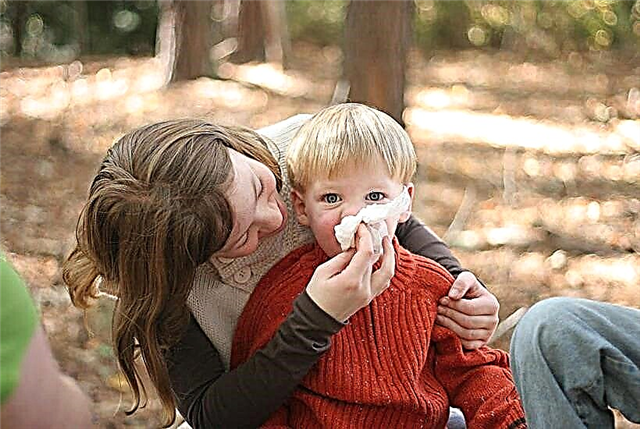
Allergic tests are a high-quality and reliable method for diagnosing allergic reactions. They are based on the effect on the child's body of an irritant to which he may be allergic, after which the reaction is assessed.
Kinds
The study can be represented by both skin tests and blood tests (immunological tests). All allergy tests are divided into:
- Direct - application of allergens to the baby's skin. At the same time, about two dozen scratches are made on the skin, into which allergens are injected. According to the skin reaction that appears (redness, peeling, swelling over 2 mm in size), it is noted which allergen is causing the child's allergy. Such tests take some time, while the child is in the hospital and is constantly monitored by the medical staff.
- Provocative - these include inhalation, nasal, conjunctival studies. Such tests are prescribed if there is an allergy clinic and inappropriate skin test results.
- Indirect - the child is injected subcutaneously with an irritant, after which a serum is injected, which is sensitive to this allergen. The reaction will help assess the danger of the allergen for the baby.

Pros and cons of methods
Skin tests
The advantage of skin allergy tests is the accuracy of the study, as well as its availability and simplicity.
The disadvantage of determining allergies through skin tests is the high risk of a negative reaction of the child's body to the sample, therefore, the study is carried out only in a medical facility. Also disadvantages are the long duration of the examination and the painfulness of the procedure.
Blood test for allergies
The benefits of a blood test for allergies include:
- The study is highly accurate because specific allergens are used.
- No direct contact with allergens.
- Analysis can be done at any time, including during exacerbations.
- To determine a significant amount of allergens, just one blood sample is sufficient.
The disadvantage of a blood test for detecting allergies is the high cost of this method.

Are there any contraindications?
Skin tests cannot be done when:
- Significant damage to the skin;
- The use of antihistamines, as a result of which the sensitivity of the skin will decrease;
- Risk of false positive or false negative results due to increased skin sensitivity to a specific allergen;
- Predisposition to anaphylactic reactions (if there have already been cases of such reactions);
- Children under 3-5 years of age;
- Long-term treatment with corticosteroids;
- Acute infections;
- Exacerbations of allergies.
A blood test for allergies is not done in infants because maternal antibodies can be detected in their blood.
When is the test done?
Allergy skin tests are performed only during the period of stable remission. After the previous exacerbation of the allergy, at least 30 days must pass before testing. Since it is impossible to predict the reaction of a child's body to a sample, such tests should be performed only in a medical facility. But blood tests can be performed at any time during the development of the disease, but not during infancy.

Which analysis should you choose?
It is important to know that skin and indirect tests, as well as provocative tests, are not recommended for children under the age of three. Many allergists argue that with a smooth course of allergies in the absence of serious manifestations, these types of tests should be done only at the age of five years, since the baby's body is able to naturally change the reactions to many allergens.
Tips for monitoring allergies at home
Parents can identify allergens in a child at home by observing the child's reaction to different foods, contact with animals, or other irritants. However, these will only be assumptions, and more reliable methods to determine allergens are tests in medical institutions.

Allergy in infants with breastfeeding
With regard to the prevention of the development of allergies, one of the important points is the nutrition of the woman during the gestation of the baby, as well as during the period of breastfeeding.
If an expectant or nursing mother consumes an excess of allergenic foods, this can cause sensitization in the child. That is why during pregnancy, as well as in the first months of breastfeeding, foods that are highly allergenic (chocolate, exotic fruits, nuts) are undesirable in the mother's diet. Trying to introduce them into the mother's diet should be extremely careful, observing how the baby reacts.



